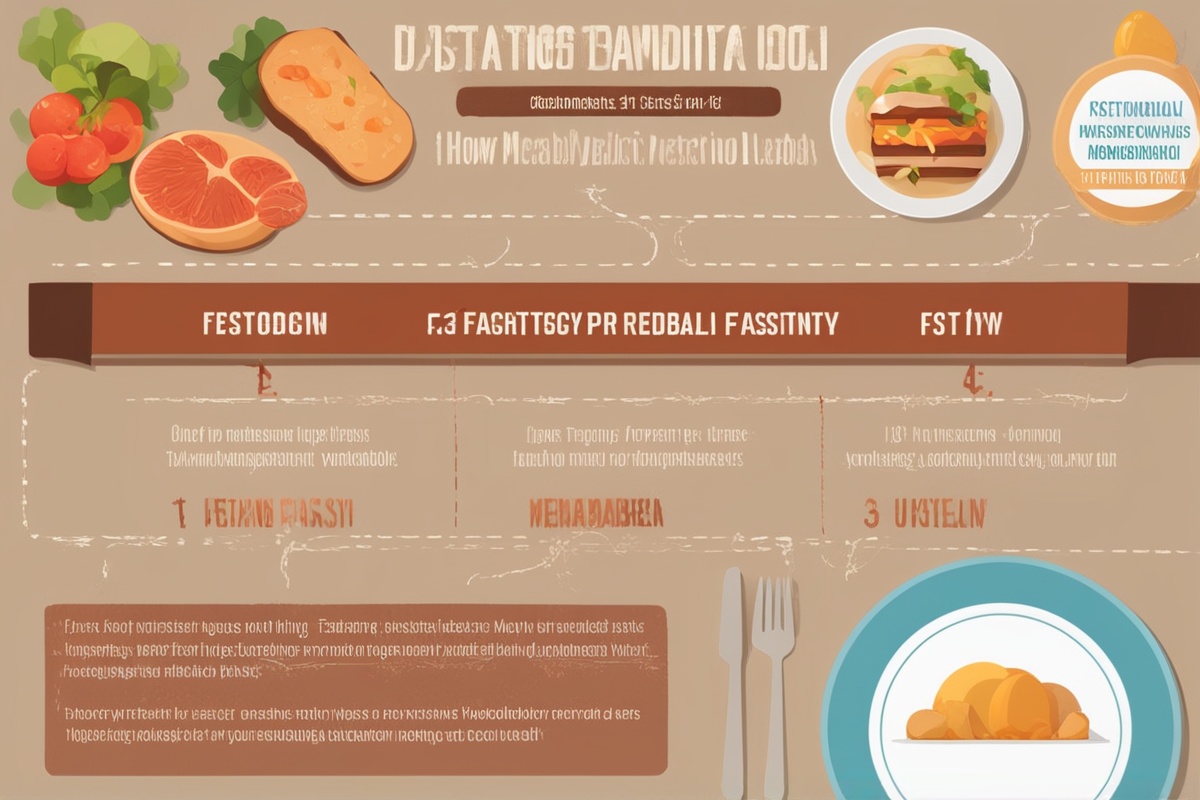Let’s be honest: fasting can feel like a double-edged sword. On one hand, it’s a powerful tool for health, weight management, and mental clarity. On the other, those hunger pangs and energy dips can make you feel like you’re dragging yourself through mud. If you’ve ever wondered how to keep your energy levels soaring while in a fasted state, you’re not alone. I’ve been there—staring at the clock during a 16:8 intermittent fast, willing myself to power through a mid-afternoon slump. The good news? There are practical, science-backed ways to boost energy during fasted states without breaking your fast or compromising your goals. Let’s dive into strategies that can help you feel vibrant, even when your stomach’s growling.
Disclaimer: This article is for informational purposes only, based on general research and personal experience—it’s not a substitute for professional medical advice, diagnosis, or treatment. Always consult a qualified healthcare provider for personalized guidance before making significant changes to your diet or fasting routine. Fasting isn’t suitable for everyone, especially those with underlying health conditions, pregnant or breastfeeding individuals, or anyone with a history of eating disorders. Your health and safety come first, so please seek expert advice to ensure fasting aligns with your unique needs.
Why Energy Dips Happen During Fasting
Ever felt like your brain’s running on empty a few hours into a fast? There’s a reason for that. When you’re fasting, your body shifts from using glucose (from food) as its primary fuel to tapping into stored glycogen and, eventually, fat reserves for energy. This metabolic switch can take time—sometimes days or weeks for your body to fully adapt through a process called ketosis. During this transition, you might experience fatigue, irritability, or brain fog, often dubbed the “keto flu” in fasting circles. According to research from Harvard Medical School, this is a normal adaptation as your body learns to burn fat more efficiently.
But here’s the kicker: energy dips aren’t just about fuel. Dehydration, electrolyte imbalances, and even poor sleep can amplify that sluggish feeling. I remember my first extended fast—a 24-hour stint—and I made the rookie mistake of not hydrating enough. By hour 18, I was ready to nap on my desk. Understanding these root causes is the first step to tackling low energy head-on.
Hydration: Your Secret Weapon for Energy
If you’re fasting and feeling drained, ask yourself: have I had enough water today? Hydration is often the unsung hero of energy maintenance during fasted states. When you’re not eating, your body isn’t getting the water content from food, so you’ve got to be intentional about sipping throughout the day. A 2018 study in the Journal of Clinical Medicine highlights that even mild dehydration can impair cognitive function and physical performance—two things you desperately need when fasting.
Here’s a tip from my own trial and error: carry a reusable water bottle and aim for at least 2-3 liters daily, depending on your activity level and climate. Add a pinch of high-quality sea salt or a splash of lemon (if your fasting rules allow) to replenish electrolytes without breaking your fast. It’s a game-changer. I’ve noticed that on days I’m diligent about hydration, my energy is steadier, and those pesky headaches stay at bay. Curious about electrolytes? Check out our post on Balancing Electrolytes During Fasting for a deeper dive.
Leveraging Light Movement to Boost Energy
Now, I know what you’re thinking: “Exercise while fasting? Are you kidding me?” But hear me out. I’m not suggesting a grueling HIIT session. Light movement—like a 20-minute walk or some gentle yoga—can do wonders for boosting energy during fasted states. When I started intermittent fasting, I’d often feel lethargic by noon. A quick stroll around the block, though, would wake me up faster than a cup of black coffee (which, by the way, is another fasting-friendly trick).
Science backs this up. A study published in Frontiers in Physiology found that low-intensity exercise during fasting can enhance fat oxidation—basically, helping your body burn fat for fuel more efficiently—while also improving mood and alertness thanks to a release of endorphins. The key is to listen to your body. If you’re new to fasting, don’t push too hard. Start with something manageable and build from there. Want more on this? Our guide to Fasted Exercise Benefits breaks it down further.
Mind Over Matter: Mental Strategies to Stay Energized
Let’s face it—sometimes the battle isn’t just physical; it’s mental. Fasting can test your willpower, especially when you’re surrounded by tempting smells or co-workers munching on snacks. I’ve been there, zoning out during a meeting because all I could think about was dinner. One trick that’s helped me is mindfulness. Taking five minutes to breathe deeply or meditate can reset your focus and curb that “hangry” feeling.
Another strategy is to keep busy. Distraction works wonders. Plan your day with engaging tasks during your fasting window—whether it’s a work project, a hobby, or even decluttering your space. Studies from the National Institute of Health suggest that mental stimulation can reduce perceived fatigue. Imagine you’re in the middle of a fast, feeling that energy dip creeping in. Instead of fixating on food, dive into a podcast or tackle a puzzle. Before you know it, your fasting window’s over, and you’ve powered through without even noticing.
Timing and Preparation: Setting Yourself Up for Success
Here’s a little nugget of wisdom from years of experimenting with fasting: timing is everything. If you know your energy tends to crash in the late afternoon, structure your fasting window to align with your natural rhythms. For instance, I’m a morning person, so I prefer skipping breakfast with a 16:8 schedule—eating between 12 PM and 8 PM. This way, my fasting hours overlap with when I’m naturally more alert. On the flip side, if you’re a night owl, a later eating window might work better.
Preparation matters too. Before starting a fast, fuel up with nutrient-dense foods during your eating window. Think healthy fats (like avocado or nuts), protein, and complex carbs. A balanced meal helps stabilize blood sugar and provides sustained energy, even when you’re not eating. I learned this the hard way after a fast where I binged on sugary junk during my eating window—my energy tanked the next day. For more meal ideas, peek at our article on Meal Planning for Fasting Success.
Supplements and Fasting-Friendly Boosts
Let’s talk about a controversial topic: supplements during fasting. Some purists argue that anything beyond water breaks a fast, but others (myself included) have found certain fasting-friendly options can help with energy without derailing metabolic benefits. Black coffee or green tea, for instance, contains caffeine that can perk you up and even enhance fat-burning, per a 2020 review in Nutrients journal. Just skip the sugar and cream.
Another option? Electrolyte powders with zero calories, designed for fasting. I’ve used these on longer fasts (think 36 hours), and they’ve helped prevent that shaky, low-energy feeling. But a word of caution: not all supplements are created equal. Avoid anything with hidden sugars or artificial additives, and always check with a healthcare provider if you’re unsure. Fasting is personal—what works for me might not work for you. The goal is to experiment safely and find your sweet spot.
Boosting energy during fasted states doesn’t have to feel like an uphill battle. With the right mix of hydration, movement, mental hacks, and preparation, you can turn fasting from a slog into a sustainable, energizing practice. Whether you’re a seasoned faster or just dipping your toes in, remember to be patient with your body as it adapts. Have a go-to energy trick during fasting? I’d love to hear about it—drop a comment and let’s swap ideas. After all, we’re all in this journey together, figuring out what makes us feel our best.
References
- Harvard Medical School: Intermittent Fasting and Metabolic Adaptation
- Journal of Clinical Medicine: Effects of Dehydration on Cognitive and Physical Performance
- Frontiers in Physiology: Exercise During Fasting and Fat Oxidation
- Nutrients Journal: Caffeine and Metabolic Effects During Fasting
This content is for informational purposes only and not a substitute for professional advice.



